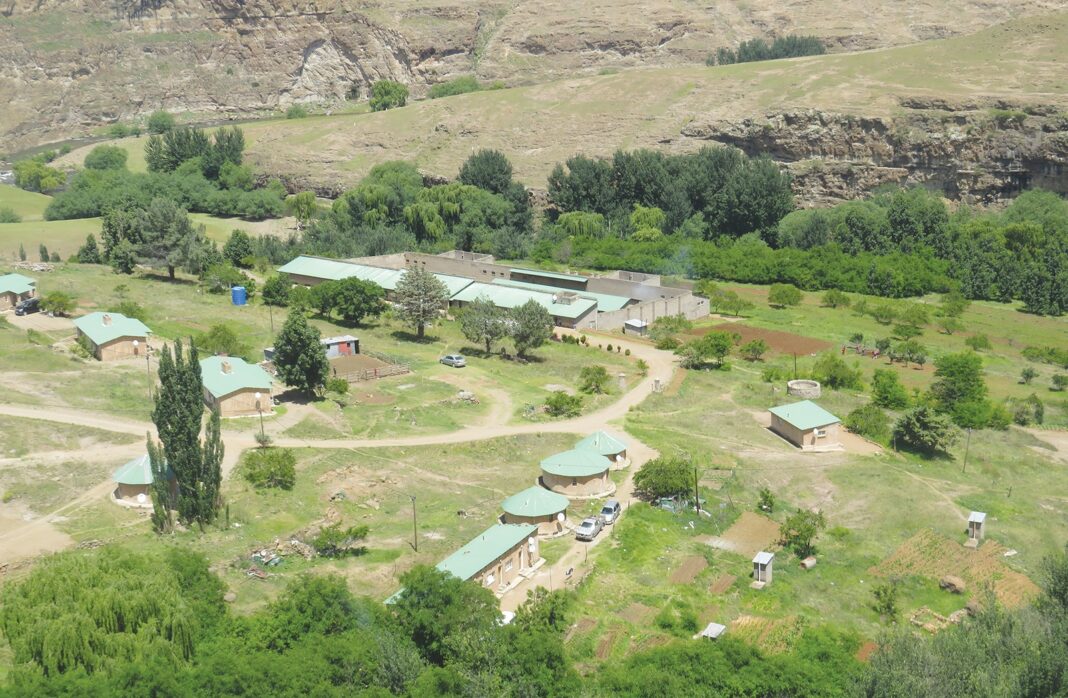By Neo Kolane
With major landmarks and places of public interest earmarked to be relocated to make way for the construction of the Lesotho Highlands Water Project’s (LHWP) Polihali Dam in Mokhotlong, the Lesotho Highlands Development Authority (LHDA) has vowed to improve and maintain the standard of living of communities to be affected by the dam.
This follows an announcement that communities from five villages to be covered by the dam will be resettled while institutions like schools and Lesotho Correctional Service prison in the district will also be rebuild.
Approximately 5,000 hectares of land will be flooded by the Polihali Dam and reservoir in the valleys and tributary catchments of the Senqu and Khubelu rivers.
This will lead to significant impacts on the livelihoods and socio-economic status of the local population as homesteads, cultivation land, trees, grazing land and other natural resources will be inundated and access to resources and facilities impeded.
The construction of the dam started after the award of the contracts by LHDA to approximately M7.68 billion.
The successful Polihali Dam bidder is the SUN Joint Venture, comprising main partners; Sinohydro Bureau and Sinohydro Bureau 14 from China, Unik Civil Engineering from South Africa and Nthane Brothers from Lesotho.
Subcontractors of the Polihali Dam include Melki Civils and Plant Hire (SA), MECSA Construction (SA), SIGMA construction (Lesotho) and Kumming Engineering (China).
The Polihali Dam, a concrete-faced rock fill dam, similar to the Mohale Dam, which was constructed in Phase I of the Lesotho Highlands Water Project, will create a reservoir on the Senqu and Khubelu rivers with a surface area of 5 053 ha.
During a recent visit to Mokhotlong by theReporter the branch manager of Polihali Gerard Mokone says a part of the correctional services facility will be submerged in water due to the ongoing Polihali Dam construction.
Mokone said LHDA is in the process of speaking to the management of the facility on how the relocation will be carried out.
“We agreed that we will move it uphill and this means LHDA will have to build a correctional facility as opposed to what it was being referred to as a prison.
“Unfortunately they are going to lose a lot of trees but we are still going to ensure that trees are still provided for far from where the water dam will flow,” he said.
The correctional facility currently has no fence and LHDA and the management have agreed to have a perimeter fence where the inmate’s visitors will be able to see them without going inside the facility.
He added: “We have rates that are being used which have been tested by our experts that building a house now would be about M7 000 square metre. That is what we consider as replacement value of a house.”
“He said the authority will provide water and sanitation such as building pit-latrine facilities to the affected communities,” Mokone explained.
He said standard rates will be used to determine the quality of the livelihoods of the residents affected by the construction of the multi-billion project.
On the issue of schools, Sekonyela Primary School is one of the those set to be relocated and itis still under inspection by an expert on how the relocation will happen.
The community participation officer at LHDA Polihali Koali Hlasoa explained that as part of the action plan, the communities and households will be compensated.
He said the implementation of Phase II requires the acquisition of land from local communities.
“Compensation and resettlement programmes are being implemented to ensure that physically displaced households are properly relocated and re-established, that compensation is paid for the loss of assets and productive capacity, that the livelihoods of affected people are restored, and that other impacts are mitigated in consultation with affected communities and households,” he added.
“The resettlement programme also includes minimising physical relocation of households to the extent possible – for instance, the Polihali Western Access Road was realigned at numerous locations to avoid impacts on homestead structures.
“It is currently estimated that 270 households and 21 businesses will need to be relocated, mainly due to the impoundment of the Polihali reservoir.
“The LHDA has secured the services of two resettlement consultants to assist with the preparation and implementation of the resettlement programmes.
“The consultants have been working closely with affected communities to identify and confirm all affected households, register affected land and assets, determine compensation entitlements and, establish relocation and livelihood restoration preferences,” Hlasoa said.









